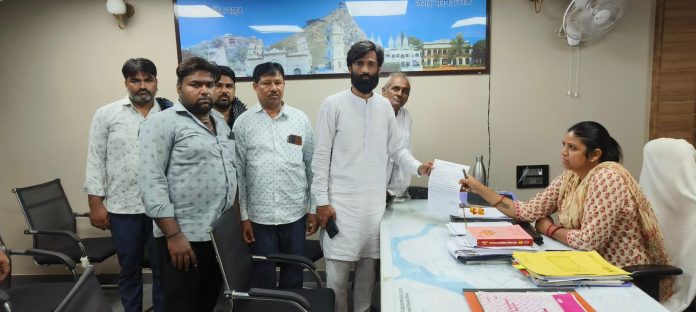By Raheem Khan
Tonk, July 23: Residents of Tonk have submitted a memorandum to the Municipal Commissioner, opposing the Municipal Council’s directive to close all meat shops in the city on Tuesdays.
Led by Advocate Kashif Zubairi, the Tonk Chicken Center Union described the order as “tyrannical” and “unconstitutional.” The memorandum argues that the directive violates Articles 14, 19, and 21 of the Constitution, which protect individuals’ rights to choose their food and conduct business.
Advocate Zubairi emphasized that thousands of residents in Tonk depend on non-vegetarian food, and the order jeopardizes their livelihood. He urged that municipal regulations should not cater to the preferences of any particular religious group.
Zubairi demanded the immediate withdrawal of the order and threatened legal action if the demands are not met.
The Municipal Commissioner has outlined several conditions for issuing a no-objection certificate (NOC) for meat shops:
– The shop floor must be paved, and walls must be whitewashed or painted annually.
– A net or chick must be installed on the shop door.
– Meat must be kept in a netted showcase for hygiene purposes.
– Meat sellers must be physically clean, wear clean clothes, and be free from infectious diseases.
– The NOC must be renewed annually before March.
– Meat shops will be closed every Tuesday and on specific state-declared holidays, including Republic Day, Martyrs’ Day, Mahashivratri, Ram Navami, and others.
Violation of these conditions may result in the cancellation of the NOC and legal action by the Municipal Council.
Tonk is a historic Muslim-majority city in Rajasthan, previously ruled by Muslim Nawabs before Independence. The current Chairman of the Tonk Municipal Council is Ali Ahmed of the Congress party. Sachin Pilot, former state president of the Congress party and former Deputy Chief Minister, serves as the MLA, while Harish Meena, also from the Congress party, is the MP.
The protest reflects broader tensions regarding municipal regulations and their impact on the local population’s livelihood and cultural practices.




